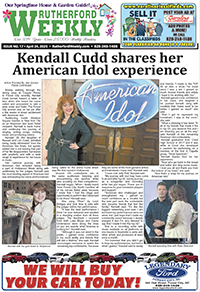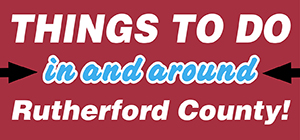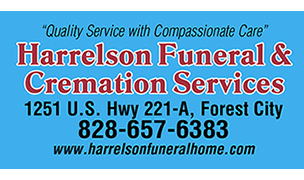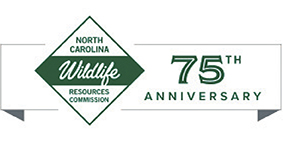Zachary Eaker, a physician's assistant from Forest City, will be out of quarantine May 12 after spending time in New York City working the COVID-19 patients. Since returning to Forest City, Zachary has learned he tested negative for COVID-19. He purchased a testing kit from a private company and learned his results last weekend.
Born and raised in Forest City, he is the son of David and Rhonda Eaker and grandson of Joanne Eaker also of Forest City. He is married to Mallory and the couple has two children, Finn, 8, and Carpenter, 5.
He graduated from East Rutherford High School, did his undergraduate at NC State and graduated from Gardner-Webb University in 2016 with my Masters in Physician Assistant (PA) Studies.
He practices as a Surgical PA in Gastonia with Singh Surgical Associates.
In his spare time Zachary enjoy spending time with friends, golfing, and shooting sporting clays.
Zachary worked at a makeshift hospital in the city from April 11 to April 28.
Since his job as a physician's assistant was experiencing down time due to elective surgeries being canceled, Zachary was free from his full time job for a while. He returns to his job in Gastonia on May 12.
Zachary saw on Facebook there was a need for physician assistants and nurse practitioners to help in New York city so he applied.
"It was an exciting opportunity but it was a difficult decision to make as well," Zachary said. " I knew that I could be putting myself at risk, there were still some questions about the PPE (personal protective equipment) that would be available, and also concerns about being able to provide the best care."
Since the coronavirus is a novel virus, Zachary said there are no clear guidelines.
Zachary said he and the others provided supportive care as best they knew how.
"My friends and family were hesitant at first but came around once we talked about it. The original commitment was for 30 days, but the numbers began to trend downward and they started cutting the number of available beds and staff."
Zachary said the makeshift hospital was like any other normal hospital. They accepted patients from the local hospitals to help reduce their patient load. These were patients who had tested positive for COVID or were highly suspicious for having the virus. Most people were sick enough that they still required medical care but did not need intensive care.
"It was amazing how quickly they were able to set up such a large facility with resources that included a laboratory, x-ray capability, and oxygen tubing to each room," Zachary said. "The other factor that comes into play in New York City is that so many people live in such a small area, which is why they have experienced the numbers they have. It's really difficult to self quarantine in a 1-2 bedroom apartment with numerous people living there, often with numerous generations of family living there. Some of our patients were stable but were a risk of spreading the virus to immunocompromised family members."
Zachary said there was not a feeling of being overwhelmed during his nearly three week stay there.
He had mentally prepared himself going in that he was going to be placed in a difficult situation that he had never experienced.
"But it never reached that point. Most patients were stable at our facility and if someone did become unstable, we had plenty of staff around to intervene," Zachary said.
"What did surprise me was how this virus can turn a stable patient into someone needing intensive care very quickly. Someone who was walking, talking, and requiring no oxygen could go downhill quickly and require intubation in a few short hours. This happened numerous times and was a reminder that these patients needed to be monitored closely," he explained.
Zachary said he was most challenged that he was not able to help out as much as he would have liked. "We were hearing reports that a lot of the providers, nursing, and hospital staff were starting to get sick and were exhausted," Zachary said.
"We wanted to go directly into the city hospitals and help but it just never happened. I think the most difficult thing was knowing that we wanted to do more, but not being able to do it."
Zachary has visited New York City on numerous occasions and said he falls into the category of people who love to visit but would not want to live there.
"I enjoy the hustle and bustle of the city and the blend of all walks of life into one place," Zachary said. "I knew that people were distancing and that the city was quiet, but didn't know it would be as eerie was it was. On numerous occasions, I heard the city compared to the opening scene of the Will Smith movie, I Am Legend. That's a big stretch but all of the areas that are usually shoulder to shoulder were completely empty.
"Times Square probably stood out the most," he continued. "You could stand in the street and take pictures without any fear of a car coming. Subway cars were empty and no cars or cabs were out. I did go to Central Park on two occasions and there were people present there but they were doing a good job on social distancing. It just didn't feel normal."
Zachary said the best part of his experience was seeing how thankful everyone in the was. He said anyone they interacted with knew who they were and thanked them for coming to help.
"The city comes out at 7pm most nights, claps, honks their horns, ring bells, yell, and bang on pans as a sign of their appreciation of front line workers. It was a cool experience to be a part of," he said.
The hotel where the workers stayed went above and beyond expectations and restaurants and organizations across the city brought in food in for the workers.
"It was really nice, especially during a time when most people are hurting," he said.
After returning home, Zachary had no symptoms associated with COVID-19.
"I was on night shift and it is taking me longer to get back on a regular sleep schedule than I thought it would," he said.
"It was an exciting adventure and I feel like we did help a lot of people but I am ready for life to get back to normal, whatever that may be," he said.
Stepping out of one's comfort zone is a good thing, periodically, and he does recommend it to others.
"I have done a lot of self studying and refreshed my memory on a lot of information that I do not deal with on a daily basis. Everyone is still learning from this virus. It's something that will be studied on not only a medical research level but on a socioeconomic level for the next 20 years," Zachary said.
"No matter how far we think we have advanced, this world can throw a curve ball at us to keep us on our toes," he said.










